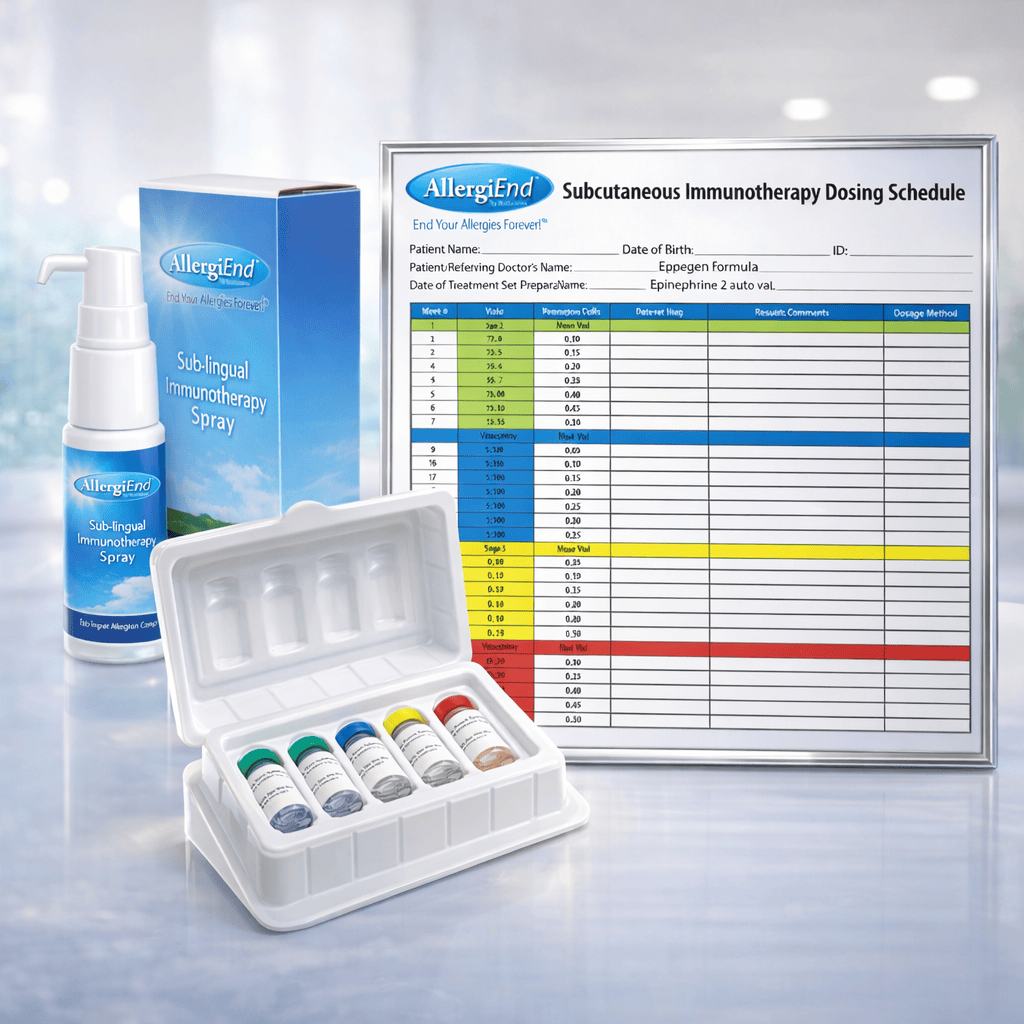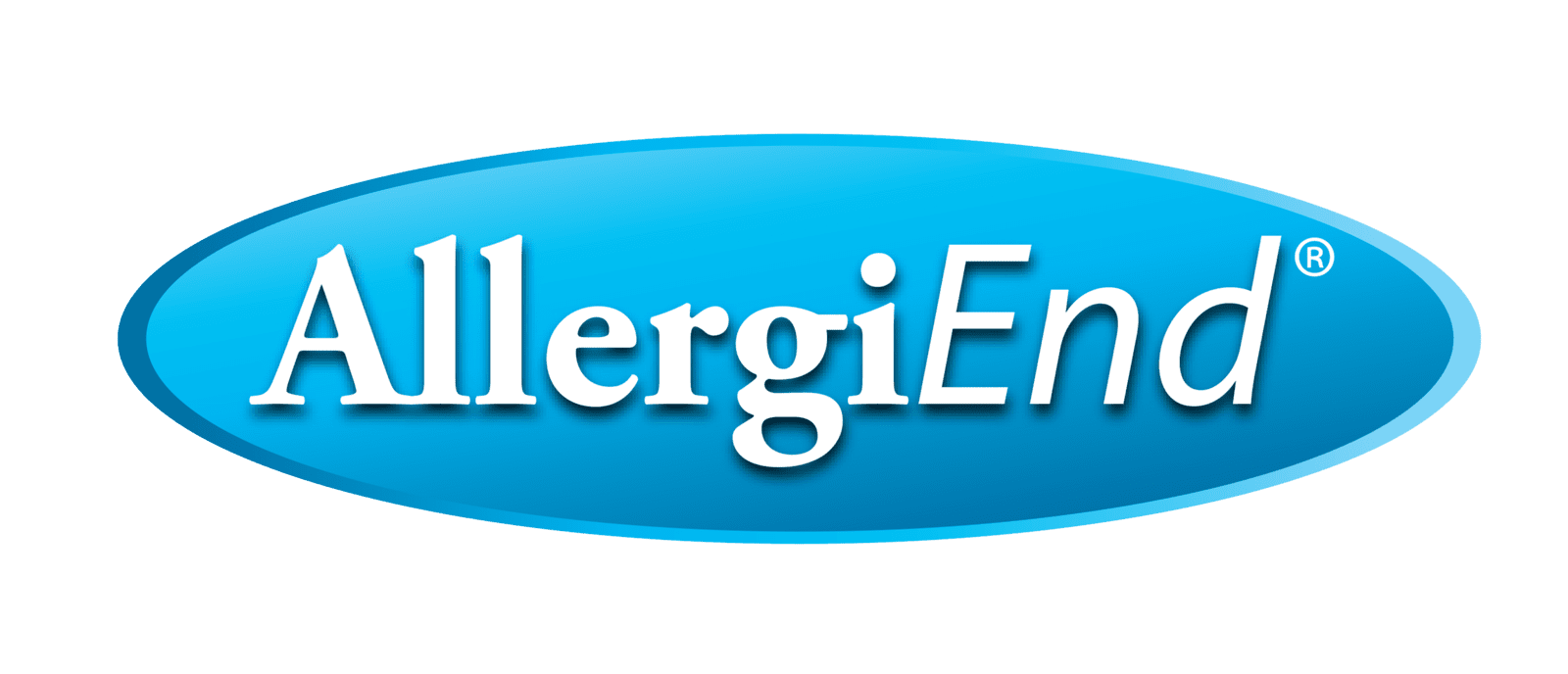If you're a primary care physician, you likely have patients who have allergies.
In the past, you may have referred these patients to a specialist. You may have taken preventive measures to help alleviate their suffering or worsening of symptoms. Still, if you’re here, you’re probably already aware of the growing allergy crisis and are seeking treatment options to help relieve your patients’ discomfort.
The allergy crisis continues to grow in the United States, but there aren’t enough allergists to meet the demand for diagnosis and treatment. Primary care providers and other non-allergist physicians, including pediatricians, are the first contact points for allergy sufferers. It’s more important than ever before to diagnose and treat your patients suffering from allergies.
With AllergiEnd® assessment, testing and treatments, you now have access to FDA-cleared, needle-free, painless skin testing that is even safe for pediatric settings.

The AllergiEnd® test is a safe, easy to administer, needle-free skin test designed specifically for primary care settings.
Test results are available within 15-20 minutes. There is no waiting for lab results, allowing the physician to make an immediate and accurate treatment determination. Once a patient is determined to have an allergic disease, the physician can immediately determine via clinical guidelines whether the patient is a candidate for in-house treatment or if they need a referral to a board-certified allergy specialist.
Allergen immunotherapy is the repeated administration of specific allergens to patients with IgE-mediated conditions to protect against the allergic symptoms and inflammatory reactions associated with natural exposure to these allergens. The exact mechanism of action is unknown but may involve an increase in allergen-specific IgG antibodies, in particular IgG4, a decrease in IgE synthesis, and an alteration in T-lymphocyte activity.
In other words, immunotherapy is the prevention or treatment of disease with substances that stimulate the immune response. Allergen immunotherapy is a form of long-term treatment for people living with allergic rhinitis, allergic asthma, conjunctivitis (eye allergy), or atopic dermatitis. Allergen immunotherapy is also known as allergy shots, desensitization, or hyposensitization.
The AllergiEnd® system will help you determine which patients will benefit most from Allergen immunotherapy. If a patient’s symptoms indicate potential allergies, step one is to test the patient to confirm the allergen trigger.
Once a patient is determined to have an allergic disease, the physician can immediately determine via clinical guidelines whether the patient is a candidate for in-house treatment or if they need a referral to a board-certified allergy specialist.
There are two methods of immunotherapy:
Sublingual Immunotherapy (SLIT): Under the tongue drops twice daily
Subcutaneous Immunotherapy (SCIT): Weekly, bi-weekly, or monthly injections given at the physician's office
Treatment plans vary, but the following is typical:
SCIT Immunotherapy
Follow the initial dosing of short intervals (every seven days). If no adverse reaction occurs, dosing concentration should be increased .5 to 1 time with each injection.
The initial build-up dosing to the intended “therapeutic dose concentration” is followed by a maintenance dosage regimen at 4-week intervals and is determined by patient tolerance and relief of symptoms.
The length of therapy varies from 3 to 5 years.
The patient's progress should be reviewed at regular intervals by the physician approximately once every 12 weeks.
Progressive improvement is typical over the first 2 to 3 years of treatment.
Discontinuation of therapy is an option after the 2 to 3 years of treatment compliance.
Physicians must consider the relapse risk against the patient preference for the continuation of therapy.
SLIT Immunotherapy
Patients take allergen prepared drops twice daily under their tongue, in the morning and the evening, for 2-5 years.
Initial improvements are typically within 90-120 days of treatment.
Place the drops under the tongue for two minutes. The drops must have time to absorb into the immune system before swallowing.
Both SCIT and SLIT treatments are considered effective. Particular attention is on studies documenting the effectiveness of SLIT over the past twenty years. SLIT consistently showed a significant reduction in allergy symptoms and the necessary use of rescue medication (Canonica et al., 2014). Some patients also report noticeable relief of allergy symptoms as early as 90-120 days into immunotherapy treatment.
